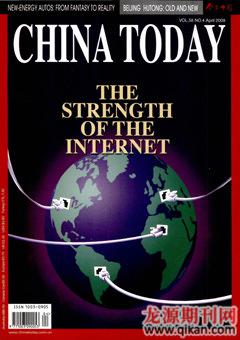VOICES
Yi Gang: Zero Interest Rate Not a Good Choice for China
Yi Gang, vice governor of the Peoples Bank of China, said recently that there is not much room for further interest rate cuts in China in the near future. He also said that compared with Japan and the U.S., Chinese interest rates seem higher, but different central banks calculate their interest rates based on totally different standards. Chinas central bank will not determine its interest rate policy simply by comparing figures. According to Yi Gang, while Japans zero-interest policy has reduced the cost of borrowing money, investors are obtaining huge loans, exchanging them for foreign currencies and investing overseas, weakening the benefits of loose monetary policy for the Japanese economy. Hence, he believes, “A zero, or near-zero interest rate is not a good choice for China.” Furthermore, domestic labor productivity is still rising, meaning most company profits are still increasing. In addition, bank savings account for a large portion of Chinas GDP, and the return on invested capital does not support a zero interest rate.
Chen Deming: China to Fight Trade Protectionism
“Protectionism cannot save the world economy during the global financial crisis and economic downturn,” said Chinese Commerce Minister Chen Deming during a procurement tour in Europe. He suggested that every country should think about the current crisis in a rational way and from a comprehensive perspective. Only the guarantee of open markets can pull the world out of a financial tailspin. Although Chinas economy is also encountering severe challenges, the Chinese government will continue with an open trade approach, and keep stimulating domestic consumption. The measures it will adopt are conducive to increasing imports and promoting bilateral investments, offering more opportunities to other countries. “The sending of a large business delegation to Europe is a concrete step taken by China to fight trade protectionism, and it shows Chinas willingness to fight trade protectionism and overcome the current economic difficulties together with European countries,” said Chen Deming.
CASS: Changing European
Perspectives on China Bring
Uncertainties to Sino-EU Relations
According to the European Development Report (2008-2009) jointly published by the Institute of European Studies at the Chinese Academy of Social Sciences (CASS) and the Chinese Association for European Studies (CAES), European perspectives on China have changed dramatically in recent times. Many Europeans are paying more attention to the challenges posed by Chinas economic development, to competition between the EU and China, and Chinas responsibilities in the development of Sino-EU relations. Researchers attributed shifts in attitude to the narrowing gap in economic power between China and the EU. Some Europeans believe that “China is taking the bread out of Europeans mouths,“ and that China has achieved its great economic development mainly by violating WTO regulations, infringing intellectual property rights, and lowering labor standards. In addition, Chinas trade surplus with the EU is making Europeans feel increasingly anxious. It is believed changes to European perspectives on China will bring many uncertainties to Sino-EU relations in the future.

